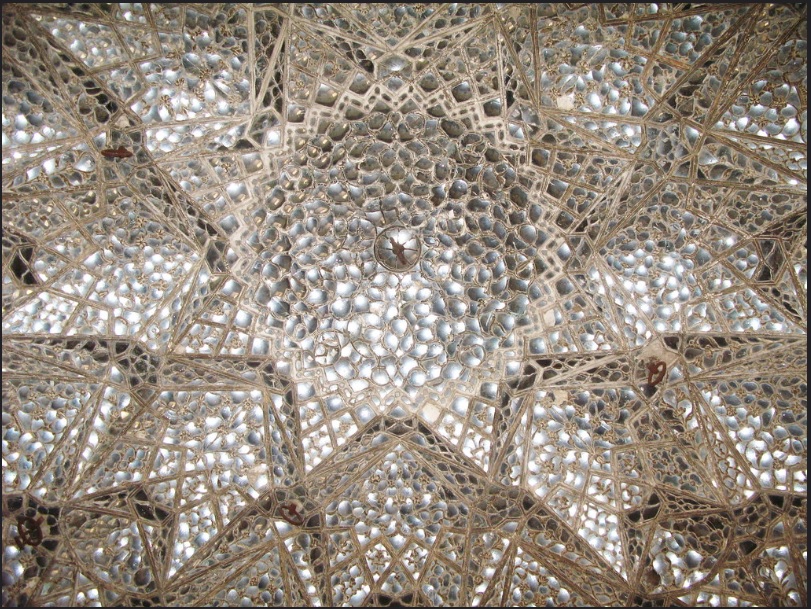FWP:
SETS == A,B; FILL-IN; SUBJECT?
MIRROR: {8,3}
TAMASHA: {8,1}
What the commentators say is all very well, but who is this mysterious 'someone', and what is he or she doing in the verse? All the rest of the ideas and imagery could perfectly well have been deployed without the 'someone'. Is the semi-personified 'Purpose', absorbed in the spectacle of mirror-fragments, dragging the speaker along with it? Is the speaker now so detached from himself that when his 'Purpose' is busy elsewhere, the rest of his psyche feels like an alien being that drags him around? Is the breaking of the heart so devastating that the inner self becomes fragmented as well? Does the mirror-chamber show him another reflected or refracted self that may seem to have more volition than he himself does? Does his shattered, fragmented heart itself become a mirror-chamber?
This verse, in short, becomes an inscrutable 'fill-in' one; we can (and must) decide on our own reading of the mudda((aa and the ko))ii , and-- since it's an 'A,B' verse-- of the relationship between them, and between the two lines.
On the subject of breakable glass mirrors versus polishable metal mirrors, see {8,3}. And for more on mirror-chambers, see {10,5}.
Note for grammar fans: The verb grammar of the second line would be ko))ii mujhe liye hu))e jaataa hai , someone [in a state of] having taken me [along], goes. This kind of lenaa is a one-shot action with continuing effects, like bai;Thnaa .

Nazm:
When from the attainment of a purpose the heart broke, the purpose was looking at the spectacle of the broken fragments of the heart. And the heart was a mirror; when it broke, then many mirrors were created and they became a mirror-chamber. This style of verse is not accepted/approved [maqbuul]. (245-46)
== Nazm page 245; Nazm page 246